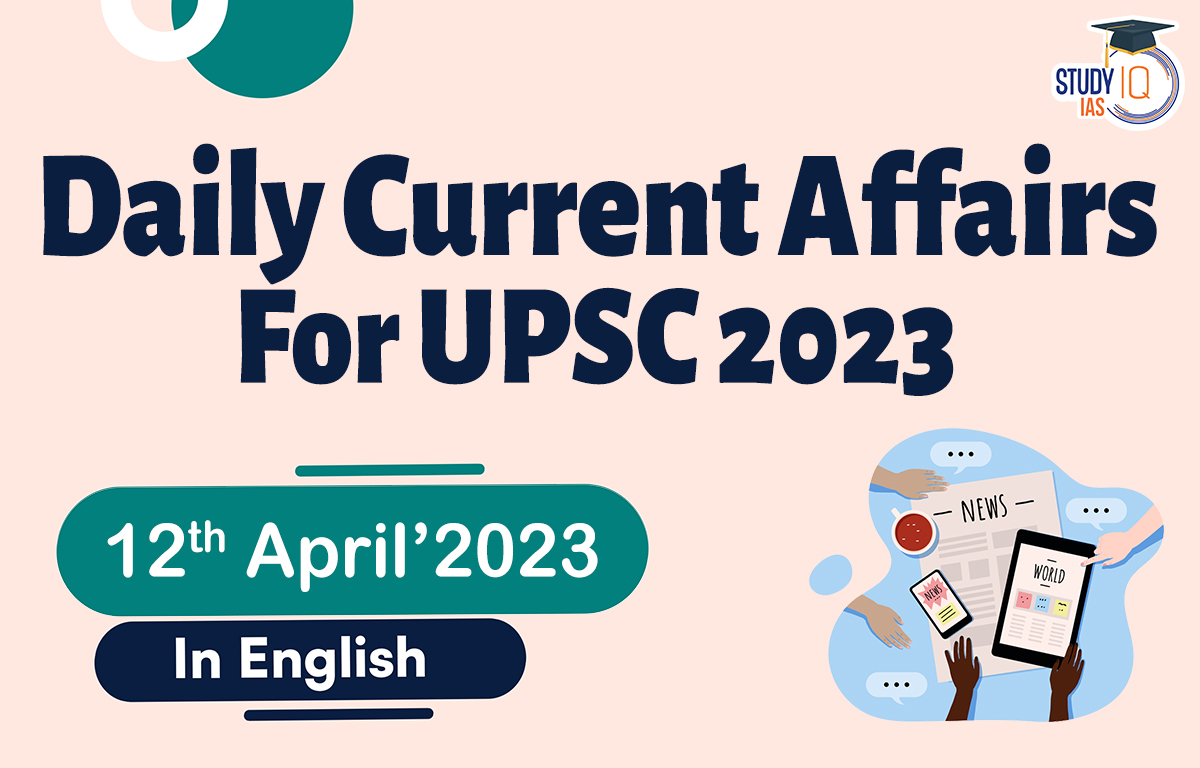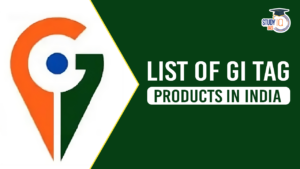Daily Current Affairs for UPSC 2023
Q) Recently seen in news, the term ‘Mucormycosis’ is best related to which one of the following?
- An infection caused in humans by a plant fungus
- An infection caused by a protozoan present in water.
- A malignant growth of cells in body due to vitamin deficiency.
- A viral infection that usually affects poultry
Daily Current Affairs for UPSC – 11 April 2023
Explanation:
- Option (1) is correct: The fungus, Chondrostereum purpureum, is responsible for causing silver leaf disease in plants, especially in species of roses, rhododendron, plums, apricots, and cherries. It can cause Mucormycosis in human beings. Despite being present abundantly in the environment, a limited number of them have the ability to infect animals and humans. They can enter through cuts/abrasions or through inhalation, can transmit the fungi and by exposure to contaminated soil, wood or plant material. The fungal infection can be treated through the use of antifungal medications, with the course depending on severity. Disease caused by plant pathogens are relatively new in humans but can have serious implications for the emergence of infectious diseases. The risk of cross-kingdom pathogens has grown due to global warming and climate change. It also shows that pathogens such as fungi are benefitting from natural selection-adaptation strategies and ability to tolerate higher temperatures. The ability of such pathogens to evade strong immune system of humans is also a cause of concern since it was believed that they mostly affected immune-compromised individuals.
Q) With reference to ‘Mahatma Jyotirao Phule’, consider the following statements:
- He worked for women’s education in India.
- He was bestowed with the title of Mahatma by Jawaharlal Nehru.
- Tritiya Ratna and Gulamgiri are two of the major books written by him.
Which of the statements given above is/are correct?
- 1 and 2 only
- 2 only
- 1 and 3 only
- 2 and 3 only
Explanation:
- Statement 1 is correct: Mahatma Jyotirao Phule was born on 11th April, 1827 in Satara, Maharashtra, belonged to the mali (gardener) community. He led a powerful anti-upper caste and brahminical supremacy movement. He was a prolific social activist and thinker who helped pioneer women’s education in India, particularly in Maharashtra.
- Statement 2 is incorrect but statement 3 is correct: He and his wife Savitribai established the first school for girls in India in Pune in 1848. He established an ashram for young widows and eventually became an advocate of the idea of Widow Remarriage. In 1873, Phule established the Satyashodhak Samaj (Truth Seekers’ Society), with the samaj’s leadership drawn from the backward classes, including malis, telis, kunbis, saris, and dhangars. It is believed that Phule coined the term ‘dalit’ (meaning crushed) to describe those who do not belong to the varna system. He was bestowed with the title of Mahatma on 11th May, 1888 by Maharashtrian social activist Vithalrao Krishnaji Vandekar. Tritiya Ratna (1855); Powada: ChatrapatiShivajiraje Bhosle Yancha (1869); Gulamgiri (1873), ShetkarayachaAasud (1881) are some of the major Publications by him.
Q) Consider the following statements about Indus Waters Treaty (IWT):
- Under the treaty, the water of the eastern rivers of the Indus, Jhelum, and Chenab belongs to India.
- The water from the western rivers of the Indus can also be used for limited irrigation and power generation purposes.
- The Indus Waters Treaty works under the overall supervision of the United Nations Security Council.
Which of the statements given above is/are correct?
- 1 and 2 only
- 2 only
- 1 and 3 only
- 1, 2 and 3
Explanation:
- Statement 1 and 3 are incorrect: Indus Waters Treaty (IWT) is a Waters-sharing agreement signed between India and Pakistan in 1960, under the supervision of the World Bank. IWT regulates the use and distribution of the Indus River system, which consists of the main Indus River and its five tributaries – the Ravi, the Beas, the Sutlej, the Jhelum, and the Chenab. According to the treaty, the waters of eastern rivers go to India, whereas the waters of western rivers primarily go to Pakistan. Three eastern rivers are the Ravi, the Beas and the Sutlej.Three western rivers are Chenab, Jhelum, and Indus main.
- Statement 2 is correct: The treaty allows India to use western river waters for limited irrigation use and unlimited non-consumptive use such as power generation, navigation, floating of property, fish culture, etc. IWT establishes a Permanent Indus Commission (PIC) consisting of two Commissioners, one from India and one from Pakistan, to promote cooperation between the two nations and resolve any questions arising from the treaty’s interpretation or implementation. Once a year, the PIC meets alternately in India and Pakistan and whenever either Commissioner asks to meet. PIC inspects rivers and works to find out what’s going on with various developments. Recently, India has received Pakistan’s response, seeking a review and modification of Indus Waters Treaty (IWT) for management of cross-border Rivers.
Q) With reference to imports in India, consider the following statements:
- India is the second-largest importer of crude oil in the world.
- Nearly one-third of India’s crude oil is imported from Russia.
- India is the fourth-largest importer of liquefied natural gas in the world.
Which of the statements given above is/are correct?
- 1 and 2 only
- 1 and 3 only
- 2 and 3 only
- 3 only
Explanation:
- Statement 1 is incorrect: India’s Dependence on OPEC Countries: India’s imports from OPEC countries constitute 85% of our total crude imports and 94% of the gas imports. According to the World Energy Outlook 2021 data, India ranks 3rd globally in crude oil imports after China and the U.S. The oil demand is growing at 3-4% a year in India.
- Statement 2 and 3 are correct: Russia has continued to be the single largest supplier of crude oil for India, which is converted into petrol and diesel at refineries. Russia’s share of India’s imports rose to 1.64 million barrels per day in March 2023, taking a 34% share. India ranks a distant 21st in crude oil production and 26th in natural gas production. India is the 4th largest importer of liquefied natural gas (LNG). Crude oil imports in India in April 2022-January 2023 rose 9.4% year on year to 192.4 million tonnes. Heavy reliance on oil imports make the Indian economy vulnerable to volatility in international oil prices, in addition to having a significant bearing on the country’s trade deficit, foreign exchange reserves, rupee’s exchange rate, and inflation.
Q) Consider the following measures:
- Increasing Cash Reserve Ratio
- Decreasing taxes on commodities
- Reducing Import duties on petroleum
- Depreciation of domestic currency exchange rate
Which of the measures mentioned above are useful to control inflation?
- 1, 2 and 4 only
- 1 and 3 only
- 2 and 4 only
- 1, 2, 3 and 4
Explanation:
- Option (2) is correct: Inflation is defined as increase in prices of goods and services over a period of time. Inflation reduces purchasing power of currency. Measures to control inflation are as follows:
- Controlling money supply through monetary policy measures, such as increasing repo rate, Cash Reserve Ratio, Statutory Liquidity Ratio.
- Increasing taxes so as to reduce disposable income, thereby controlling demand.
- Banning export of certain commodities, especially food, so as to control prices.
- Reducing import duties on high-demand imported goods such as vegetable oil and petroleum.
- Appreciation of domestic currency exchange rate to reduce import cost of essential goods.
Inflation-targeting is Central Bank’s Monetary Policy that aims to keep inflation rate close to an agreed target. New Zealand, Canada and the United Kingdom were the first three countries to implement fully-fledged inflation targeting.


 List of GI Tag Products in India 2025, S...
List of GI Tag Products in India 2025, S...
 Abel Prize for Mathematics Winners List ...
Abel Prize for Mathematics Winners List ...
 Protection and Enforcement of Interests ...
Protection and Enforcement of Interests ...





















